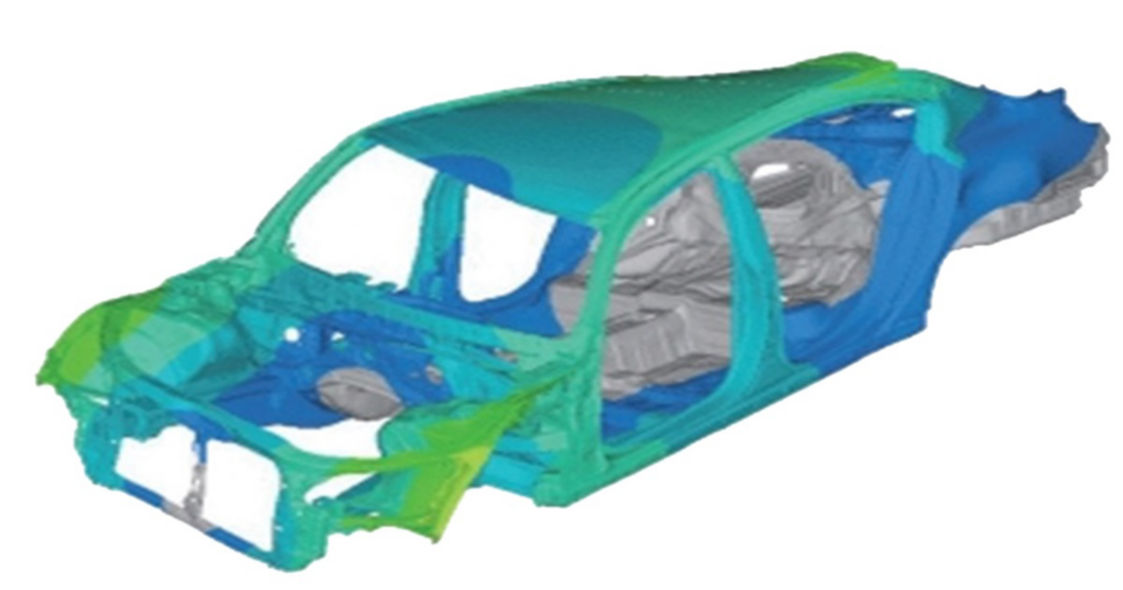Ansys software will provide predictively accurate, end-to-end capabilities for body durability analysis
Key Highlights
- Ansys’ structural simulation solutions will help deliver next-generation vehicles that provide a safer, more comfortable passenger experience
- Provides end-to-end, predictively accurate capabilities for virtual performance validation of the body system
- Hyundai motor company named Ansys Mechanical™ and Ansys LS-DYNA™ its preferred structural analysis solutions following a rigorous 18-month competitive evaluation
PITTSBURGH, PA, March 5, 2024 – Hyundai motor company named Ansys (NASDAQ: ANSS) a preferred supplier of structural simulation solutions for body system analysis that will ultimately support improvements to the safety and comfort of tomorrow’s passengers. Ansys’ strong market strategy, predictive accuracy, and commitment to product development rose above competitive offerings to become Hyundai’s preferred supplier.
For automotive companies with well-established product development processes, transitioning from one simulation tool to another demands extensive time and strict evaluation standards. Hyundai benchmark tested multiple simulation solutions over the course of 18 months, exploring areas such as model analysis accuracy, high-performance computing throughput, and future product strategy.
Ansys Mechanical, the leading finite element analysis tool, and LS-DYNA, the leading explicit simulation tool for crash safety analysis, outperformed competitors and demonstrated stronger analysis accuracy, better performance in data processing, and a robust future technology development strategy. These high-performance capabilities will be utilized in the analysis of body system durability, stiffness, and strength.

“Adopting a new simulation product requires detailed application and operational planning of the solution for each vehicle development stage, and thorough validation by both the manufacturer and solution supplier,” said Ill-Joo Noh, MPV and small sized vehicle chassis and body CAE team of Hyundai motor company. “To remain leaders in the increasingly technological industry, we must work closely with our partners to ensure our current and future needs are met. Ansys demonstrated its excellent simulation performance meets our current and future requirements, proving it can operate at scale for complex solutions.”
“Hyundai’s evaluation and decision illustrate ANSYS’ ability to meet the needs of the automotive industry’s biggest and most complex engineering challenges,” said Shane Emswiler, senior vice president of products at Ansys. “We are continuously enhancing Mechanical to work seamlessly with LS-DYNA to provide our partners with a full solution. Ansys and Hyundai share an unwavering commitment to innovation and quality, and together we will usher in a new era of safe, comfortable, and reliable vehicles.”
About Ansys
Our Mission: Powering Innovation that Drives Human AdvancementTM
When visionary companies need to know how their world-changing ideas will perform, they close the gap between design and reality with Ansys simulation. For more than 50 years, Ansys software has enabled innovators across industries to push boundaries by using the predictive power of simulation. From sustainable transportation to advanced semiconductors, from satellite systems to life-saving medical devices, the next great leaps in human advancement will be powered by Ansys.
Ansys and any and all ANSYS, Inc. brand, product, service and feature names, logos and slogans are registered trademarks or trademarks of ANSYS, Inc. or its subsidiaries in the United States or other countries. All other brand, product, service and feature names or trademarks are the property of their respective owners.
ANSS-C
As originally posted HERE
Virginia Tech Corporate Research Center (VTCRC) has a mission to create a space with purpose where innovators have access to unparalleled resources, partnerships, and opportunities for growth. Born out of a need to translate Virginia Tech research to commercial potential, the VTCRC was established in Blacksburg in 1985. Since then, it has been home to over 750 premier organizations with a common goal to disrupt industries. Today, with operations across Virginia, the research park continues to be a destination for growth and a space with purpose. The VTCRC is a for-profit, wholly owned, private subsidiary of the Virginia Tech Foundation, and is, therefore, not a state entity. Learn more at https://vtcrc.com/.